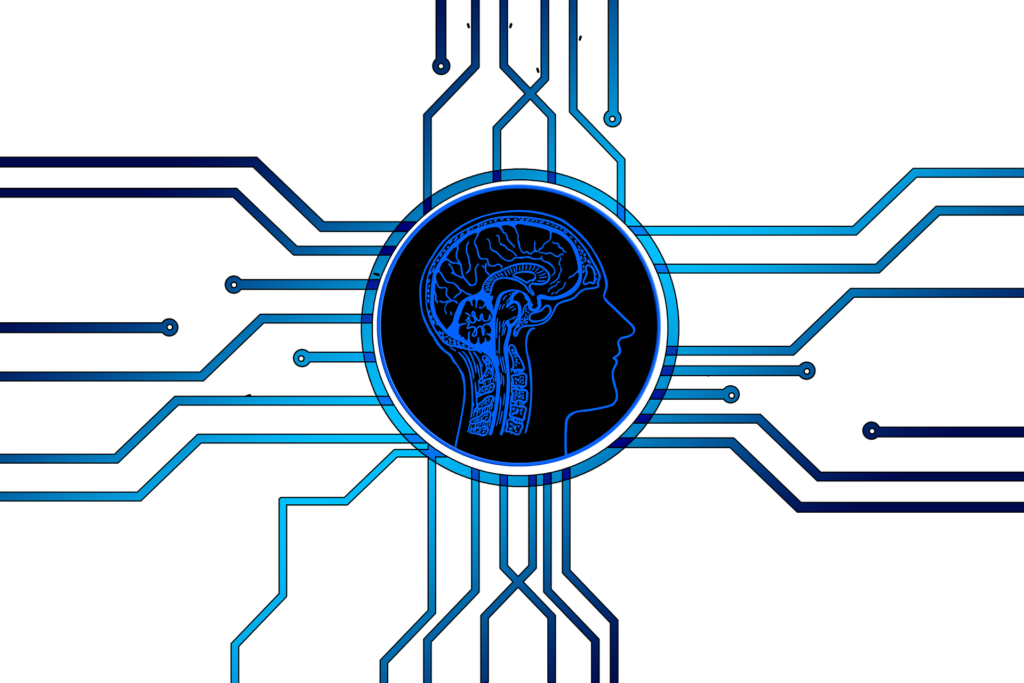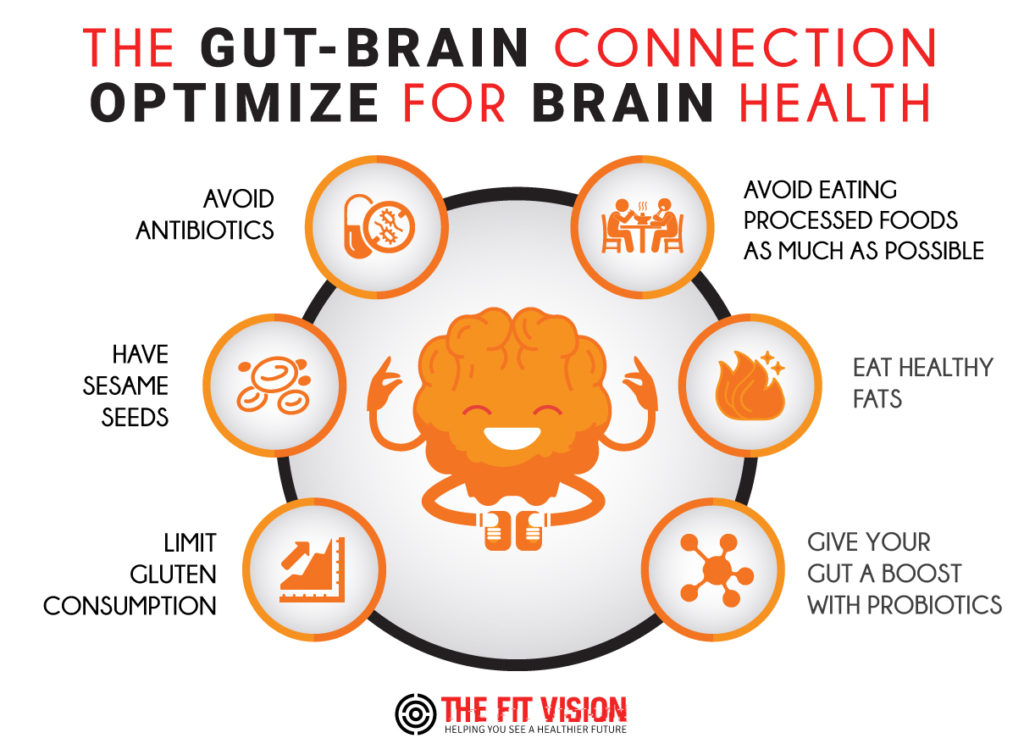
The Gut-Brain Connection: What Is It and How You Can Optimize It for Better Brain Health
Have you ever experienced a “gut-wrenching” moment? Do you find yourself saying “I have butterflies in my stomach” in certain situations? We now know that these phrases come from the gut-brain connection.
Numerous studies have shown that the gut may affect how the brain functions. This harmonious relationship between the digestive tract and the brain is called the gut-brain connection. The mind and the gastrointestinal tract exchanges information twenty-four hours daily, regardless if you’re asleep or awake.
The gut-brain connection has a significant impact on human experiences. This impact includes how we feel, how we interact with others, and how much we eat. If we try to understand how the gastrointestinal system and brain connection works, we can help guide ourselves toward optimal health.
What is the Gut-Brain Connection?
Hidden in the walls of the digestive tract is the system of communication between the brain and the gut. This system is what we call the “brain in your gut.” Otherwise known as the Enteric Nervous System (ENS), it has revolutionized medicine’s understanding of how the brain connects with one’s mood, digestion, and overall health.
Unlike the brain in the skull, which acts as our central nervous system, the ENS can’t process the information we encounter every day. The ENS primary role is to control digestion, from the time we swallow our food until the time nutrients are absorbed in the small intestines. The ENS is not capable of processing our thoughts, but it communicates with the big brain to keep our body systems working in harmony.
The brain and the gut are connected both physically and biochemically via three factors – the vagus nerve, chemical neurotransmitters, and the gut flora.
- Vagus Nerve: The Vagus nerve is the gut’s direct connection to the brain. It controls messages sent to and from the gut as well as the lungs, heart, and other vital organs.
- Neurotransmitters: The gut also communicates with the brain through chemicals known as neurotransmitters and hormones which contains messages about regulating the body systems.
- Gut Microbiota: Gut flora or microbiota refers to the engaged community of microorganisms that live in our gastrointestinal tracts. The chemical signals that go back and forth to the brain can be affected by these microbes that live in the gut.
What is a Healthy Gut Microbiome?
The collection of microbes that live in the body is known as the microbiota. The microbiome refers to the complete set of genes within these microbes
Here’s the thing – your gastrointestinal tract is home to millions of microorganisms. The thought of it might seem scary, but in reality, these microbes are what keeps everything in the digestive world working in the correct order. To keep the gut healthy, we first need to know what comprises a healthy gut microbiome.
One of the established criteria for a healthy gastrointestinal system and gut-brain connection has been the abundance and diversity of microbial species in the gut. Many bacteria are living in the digestive tract and have beneficial effects. There are some however that may also pose a threat to one’s health when they are in excessively high or low numbers.
Although there are different species of bacteria in your gut, its stability and resilience are critical for your optimal health and well-being. A stable gut ensures beneficial bacteria can return quickly to an equilibrium state after a significant alteration. This alteration could be due to stress-related events or a disturbance itself on the gastrointestinal flora.
How Can The Gut-Brain Connection Affect Your Health?
If there’s an irritation in the gastrointestinal system, primarily in the gut microbiome, the ENS will send signals to the central nervous system. These signals will trigger the sudden mood changes. There’s a strong relationship between problems concerning the mind and gastrointestinal symptoms such as indigestion, acid reflux, heartburn, bloating, constipation and diarrhea.
Moreover, the gut microbiome plays a critical role in the body’s immune system by managing what goes into the body and what gets excreted. Therefore, if there’s an irritation in the gut microbiome or inflammation due to a weakened immune system, it can have adverse effects on the brain causing symptoms like anxiety and depression.

How to Take Care of Your Gut for Optimum Brain Health?
In this world of modern times, what we eat and drink has changed drastically. We are at a time wherein what we consume involves a lot more chemicals and drugs. We are, however, beginning to learn how these factors along with chronic life stress can negatively alter not only our gut microbiome but the complex process of the gut-brain connection.
There are still many mysteries of the brain and its association with gut health. There are however a few things you can do to improve your gut-brain connection.
1. Avoid Eating Processed Foods as Much as Possible
Ultra-processed foods like chips and canned goods have lots of added artificial sweeteners and preservatives. Although these ingredients are necessary for the food to last long, they are responsible for a variety of health conditions, such as obesity, type 2 diabetes, and migraine.
2. Give Your Gut a Boost with Probiotics
The best way to take care of your gut-brain connection is to improve your gut health, and that includes eating probiotic-rich foods. Probiotics are responsible for strengthening your immune system and supporting nutrient absorption. Probiotics do not only cause your gut health to thrive, but it also improves your mood.
3. Eat Healthy Fats
You may be saying, isn’t fat bad for health? We need some fat which provides a significant source of energy and aids in many functions of the body. Healthy fats are essential in blood clotting, muscle movement and in building cell membranes.
Moreover, healthy fats are necessary for optimum brain development. Fats also maintain a robust brain connection to the different parts of the body. Examples of healthy fats that should be part of your diet include monounsaturated and polyunsaturated fats. Examples include olive oil and avocados. Olive oil is rich with antioxidants that protect cells from damage. It also works as an anti-inflammatory agent and helps improve cognitive function. Avocado, on the other hand, has various health benefits from maintaining a healthy heart to aiding with digestion.
4.Limit Gluten Consumption
A low-gluten diet is proven to alter the gut microbiome positively by reducing gastrointestinal discomfort. Gluten can cause long-term changes in your gut microbiome by decreasing the amount of the beneficial bacteria in your gut.
5.Include Mushrooms in Your Diet
Mushroom is a good source of vitamin B6 – a substance that has a significant impact on the production of the happy chemical serotonin and other essential neurotransmitters. A healthy vitamin B6 level is known to reduce stress naturally and helps you achieve a positive mood.
6.Have Sesame Seeds
The health benefits of sesame seeds come from tyrosine, an amino acid that boosts the brain’s dopamine levels. Dopamine is a neurotransmitter associated with feelings of euphoria, motivation, bliss, and concentration. Along with dopamine release from the brain comes a good feeling accompanied by an increase in energy. It kicks the feel-good hormone up in the body while balancing out the other neurotransmitters.
7. Try Eating Nuts
Nuts are good for boosting serotonin – a happy chemical which when in low levels cause a less than optimal mood. Have a small handful of nuts in your diet, like cashews, almonds, walnuts, or Brazil nuts to ensure you have an adequate amount of serotonin in your body.
8. Avoid Antibiotics
Avoid taking antibiotics unless your doctor says you absolutely need them. Antibiotics do not only kill the harmful bacteria in your gut, but it also eliminates the good bacteria in your stomach necessary to keep your gut working correctly.
9. Get Your Doctor in the Game
Whether you think you have a digestive problem or not, paying a visit to your doctor for a check-up is always a good idea. A doctor can help you figure out if your gut microbiome is healthy. If the doctor suspects any problems, he can give you personalized suggestions to improve your gut-brain connection and eventually your overall health.
You are what you eat
As it turns out, the phrase “You are what you eat” is more accurate than you’d think. The food you eat every day has a significant impact on your gut microbiome, either positively or negatively. Likewise, the state of your gut health is also associated with how your brain functions. Aside from exercising every day, make sure your gut-brain connection works efficiently by improving the state of your gut health.
Please share using the buttons below if you enjoy our content. It is greatly appreciated!
Take the next step and learn how sleep affects your brain health right here!